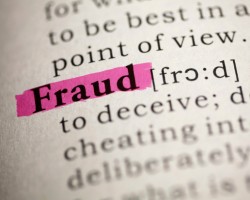
The National Law Review –
In HSBC Bank USA v. Rowe, 2015 IL App (3d) 140553, the Third District appellate court recently affirmed a grant of summary judgment in favor of a lender despite some discrepancies between the copy of the note attached to the complaint and the note submitted into evidence. The Rowe decision presents some valuable practical considerations for lenders and legal practitioners who are engaging in foreclosure work.
In Rowe, following the borrowers’ failure to make mortgage payments, the bank filed a foreclosure action. The trial court subsequently granted the bank’s motion for summary judgment and entered a judgment for foreclosure and sale. The borrowers appealed on numerous grounds, however, the argument of legal import pertained to alleged discrepancies between the note attached to the complaint, and the note actually presented at summary judgment as evidence.
The copy of the note attached to the bank’s complaint was signed by one of the borrowers and the first page of the copy of the note contained the bank’s stamp, certifying that it was a “true and correct copy of the original.” The copy of the note attached to the bank’s subsequent motion to strike the borrowers’ affirmative defense, however, did not contain such certification stamp, but included an indorsement in blank below the borrower’s signature…
© 2010-19 FORECLOSURE FRAUD | by DinSFLA. All rights reserved.



shame on this crookest Illinois court and their rubber stamp judges
It just doesn’t fucking matter – banks win – we lose everything. I had fabrications, wildly discrepant documentation, two different ‘true test’ copies – Not one judge in Baltimore County all the way up to Maryland’s highest court gave it a second look. The prevailing attitude is that we are all deadbeats who bought too much house. Most of us who have been there know that this simply is not the case. All I wanted was leverage to renegotiate my mortgage – no I did not want a free house – just leverage. I couldn’t even get that! In the end they got my ancestral waterfront property and a 10 year old house that had been rebuilt after Storm Isabel in 2003.
Reading the opinion itself … raises many questions.
I note the appellants were self represented.
The opinion states, on page 3, ¶ 11, “At oral argument on the motion for summary judgment, plaintiff produced the original note in open court for the second time.”
OK, who determined the note to be original, and how did they make that determination (either time)?
It is common for bank attorneys to bring papers into court, state the papers are original, and wave them under the nose of the court.
For the moment disregard the long standing prohibition of attorneys testifying on behalf of the client. See, for example, Wigmore on Evidence, Third Addition, Vol. VI, section 1911, page 606: ‘There is then in general no rule, but only an urgent judicial reprobation, forbidding counsel or an attorney to testify in favor of his client.’ See also ABA Rule of Professional Conduct 3.4(a) “A lawyer shall not act as advocate at a trial in which the lawyer is likely to be a necessary witness …”
The question begged by an attorney making such statement is “How do you know that?” If the answer is any variation of “Somebody told me” then the statement is hearsay.
Combine hearsay, and prohibited testimony, and you have … prohibited attorney hearsay testimony.
The opinion doesn’t offer enough information to conclude that is what happened in this case. But it happens often.